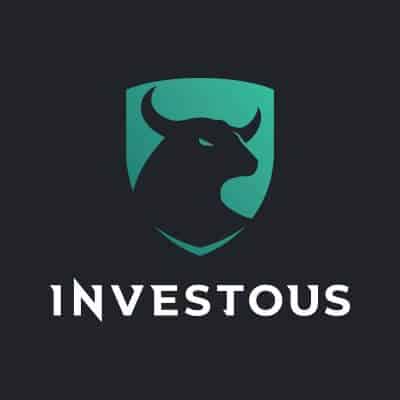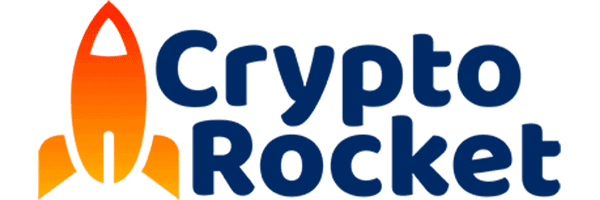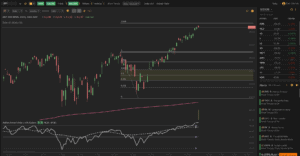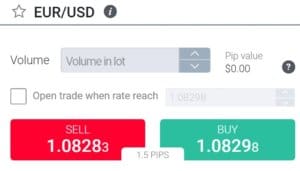Best Trading Software for 2026
Getting the right trading software is enormously important for traders. To succeed as a trader in today’s market, it’s essential that your trading software perfectly matches your trading goals and style.
But with all the trading software options available today, it can be hard to figure out the one that works best for you.
In this guide, however we’ll take a closer look at three of the best trading software packages available in 2021. We also explain everything you need to know about choosing the one that’s right for you.
-
-
Best Trading Software Packages for 2026
1. Investous - Best Trading Research Software
Investous stands out among trading software packages because it offers a wide range of advanced research tools. For starters, the platform includes reasonably sophisticated yet easy to use charting software. In addition, Investous gives traders access to the popular MetaTrader 4 software. This tool allows advanced traders to create custom technical studies, backtest strategies to fine-tune them, and even automate trades.
The trading software also includes a daily market roundup for traders, which is useful for finding out what happened across the market on any given trading day. We especially like the sentiment indicator, which uses data from different social media platforms to display the degree of optimism/pessimism by investors towards buying or selling an asset.
Investous only hosts a limited number of financial assets compared to other trading software. For instance, the platform doesn’t allow you to trade ETFs and there are only 30 currency pairs for Forex trading. However, this broker makes up for this by offering relatively high leverages of up to 500:1 for the different trader accounts.
Additionally, the broker doesn’t maintain a transparent fee structure. While you only need $250 to open a trader account, the broker offers discounted trading fees and tighter spreads to traders who maintain a minimum of $25,000 in account balances. This makes Inventous better suited for high-volume traders.
- Assets: Stocks, Cryptocurrencies, Forex, Commodities (all as CFDs)
- Demo Account: Yes
- Trade Commissions: No
- Research Tools: Advanced charts, MetaTrader 4 indicators
- Minimum deposit: $250
OUR RATING

- Advanced Charting: Get access to MetaTrader 4 trading platform
- High Leverage: Up to 500:1 for all traders
- Market Roundup: Keep tabs on the entire market
- Limited Asset Variety: No ETFs and only 30 forex pairs
- Spread Discount: Larger account holders get a discount
2. CryptoRocket - Best Trading Software for Cryptocurrency
CryptoRocket is one of the best trading software options we’ve seen for traders who want to speculate on currencies or cryptocurrencies. Whereas most brokers only offer a handful of top cryptocurrencies, this broker lets you trade an impressive 35 different digital coins. In addition, the platform offers trading for around 64 stocks, a couple commodities, and US Dollar futures contracts.
As if all that weren’t enough, CryptoRocket offers highly attractive leverages. You can trade major cryptocurrencies and forex pairs at margins of up to 500:1. Spreads are highly competitive and average between 0.15 to 0.25% for most assets. Plus there are no trade commissions.
Other features unique to CryptoRocket include the fact that you can fund your trading account with Bitcoin rather than US Dollars.
CryptoRocket doesn’t offer its own integrated charting tool. However, it does come with access to MetaTrader 4, which is just as good. Note that inexperienced traders may have a hard time using this software, but it’s a major plus for advanced forex investors.
- Assets: Stocks, Cryptocurrencies, Forex, Commodities (all as CFDs)
- Demo Account: Yes
- Trade Commissions: No
- Research Tools: MetaTrader 4
- Minimum deposit: $50
Our Rating

- Cryptocurrency Choices: Trade as many as 35 different coins
- High Leverage: Trade crypto and forex on 500:1 margin
- Deposit Bitcoin: Use Bitcoin rather than US Dollars to fund your account
- Few Assets: No ETFs, limited stock choices, and few commodities
- No Basic Charts: May be more difficult for beginners
How to Choose the Best Trading Software
With several top trading software options to choose from, how do you know which one is right for you? At the end of the day, it’s critical to match your trading software to your investing goals and style. Let’s take a closer look at some of the factors that vary among platforms and that you should evaluate when picking a trading software.
Assets
Start with narrowing down your options and identify the assets you want to trade. If you are a day trader and short-term trader, you may want to focus on making money from the fast-moving and moderately volatile asset classes, like Forex or cryptocurrencies.
Trading platforms differ a bit in terms of the type and number of assets they offer for trading. Many brokers only offer trading around stocks, bonds, and ETFs. Others focus on Forex and trading cryptocurrencies. The three trading software options that we recommended are multi-asset trading platforms. But, make sure that if you want to focus on, stock trading, for instance, your platform doesn’t just offer a few stocks—you’ll want a wide selection of stocks to choose from.
Leverage
You also want to consider the amount leverages offered by your preferred trading software. Leverage is critical because it allows you to enter into larger positions with relatively low trading balances. Leverage also allows you to diversify your portfolio by opening positions with a relatively small amount of cash.
Maximum leverage can vary from up to 500:1 at CryptoRocket, and some brokers don’t allow margin trading.
Trading Tools
Trading and research tools are at the heart of high-quality trading software. Having the right tools at your disposal can mean the difference between trading profitably and repeatedly missing out on profitable trading opportunities.
Different trading software and platforms support different tools and indicators. Technical charts allow you to look at the price history and apply mathematical indicators to determine where the price of an asset is headed in the future.
Charting tools can range from the very basic to the highest levels of sophistication. When thinking about what a prospective trading software offers, consider whether the charts come with a variety of technical studies, whether you can design your own custom indicators to find trading opportunities, and whether you can backtest a strategy to determine if it would have been profitable over past months of trading.
In addition to charting tools, many trading software packages offer several other important trading and market analysis tools that you can use to increase your profitability. These include price alerts that ensure you never miss a trade. Newsfeeds, market roundups, and analyst reports also come in handy in helping you understand the internal and external factors acting on a given tradable security.
Fees and Spreads
You also need to take into account the fees, commissions and other trading costs charged by a trading software or brokerage. These range from spreads to deposit/withdrawal processing fees.
None of the top trading software packages we recommended maintain trade commissions. But, there’s still a cost for each trade in the form of the spread. This is the difference between what you can buy and sell an asset for at any given time.
Spreads vary widely among brokers. While the spread might not be a major concern for investors who only place a few trades, it can have a huge impact on the profitability of day traders and active traders. Make sure to check the spreads charged by the trading software, especially for the asset class you’re planning to trade most frequently.
In addition, it’s important to evaluate whether there are any other fees that you’ll be charged for using the trading software. For example, some brokers charge deposit, withdrawal fees, and inactivity fees. Consider them individually and in their totality to determine the impact they may have on your profitability before creating a trader account with the trading platform.
Conclusion
Getting the trading software that matches your investing style and goals is essential. When looking for the best trading software, pay attention to such important factors as the number of supported financial instruments, the platform trading fees, access to leverage, and the reliability of their customer support team.
FAQs
What are contracts for differences?
Contracts for differences (CFDs) are derivatives that allow you to speculate on the price of an asset without actually owning it. CFDs are particularly useful for commodity and Forex trading since you don’t have to take ownership of a commodity or foreign currency. CFDs are also good for investors because they can be traded with leverage. But if you use CFDs for stock trading, keep in mind that you won’t be eligible for dividends.
Can I pair my brokerage account with a third-party charting software?
It depends. Some third-party charting software is designed to be compatible with a variety of brokers so that you can place trades right from your charts. However, not all software is compatible with every brokerage. Be sure to check whether a prospective charting platform supports integration with the broker where your trading account is located.
How much leverage should I trade with?
Leverage enables traders to multiply the effective size of their position without investing more money. That’s extremely powerful because you can realize significant returns even if an asset only changes in price by a few percentage points. However, leverage cuts both ways and also increases your potential losses. We recommend that beginner traders start out with 10:1 leverage or less and only use more after you have a trading strategy with a proven record of success.
How much money do I need to start trading?
How much money you need to start trading depends on your investing style and goals. In general, you can get started trading most asset classes with just a few hundred dollars. However, you may need more money to get started if you want to invest in expensive stocks or commodities.
See Our Full Range Of Trading Resources – Traders A-Z
Michael Graw
View all posts by Michael GrawMichael is a writer covering finance, new markets, and business services in the US and UK. His work has been published in leading online outlets and magazines.
WARNING: The content on this site should not be considered investment advice. Investing is speculative. When investing your capital is at risk. This site is not intended for use in jurisdictions in which the trading or investments described are prohibited and should only be used by such persons and in such ways as are legally permitted. Your investment may not qualify for investor protection in your country or state of residence, so please conduct your own due diligence. Contracts for Difference (“CFDs”) are leveraged products and carry a significant risk of loss to your capital. Please ensure you fully understand the risks and seek independent advice. This website is free for you to use but we may receive commission from the companies we feature on this site.
Copyright © 2026 | Learnbonds.com




